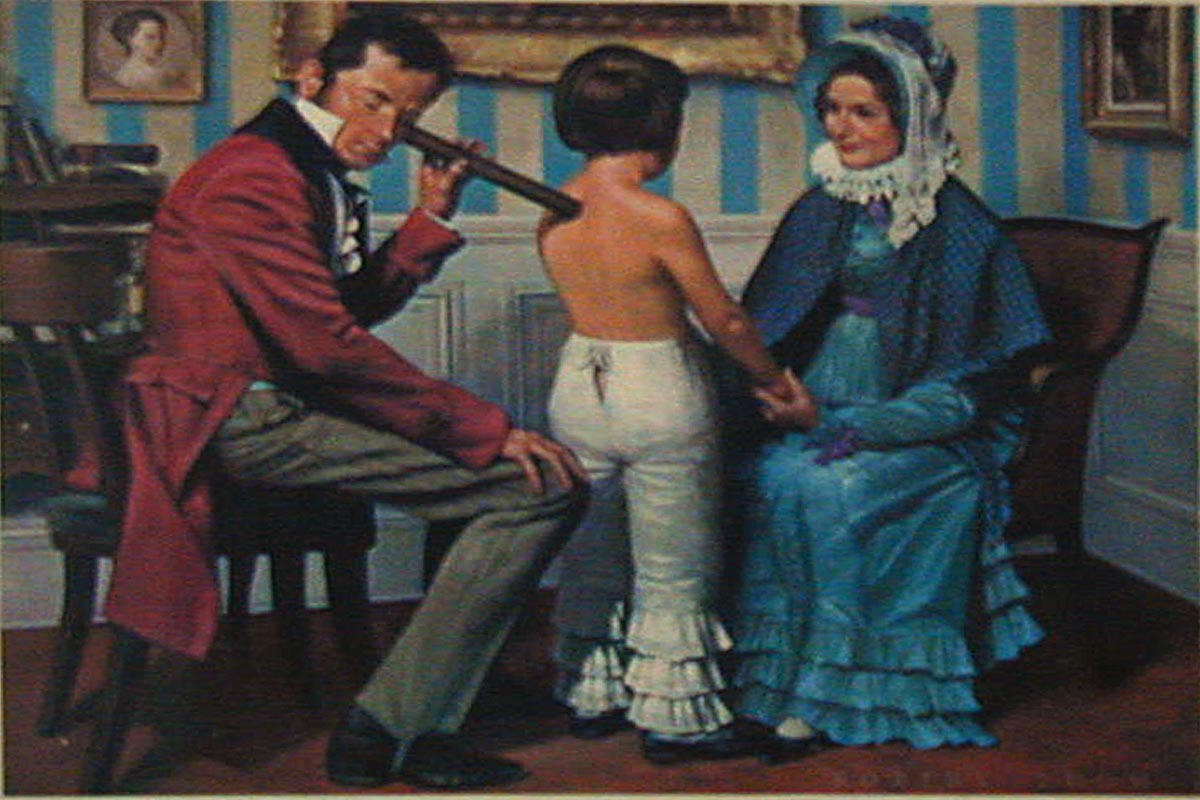French doctor René Laennec (1781-1826) had a sensitive ear; as a flutist he knew how to listen.
In 1816, he came upon an idea that would help him to hear the internal sounds of the body. He rolled up sheets of paper into a cylinder and pressed one end to a patient’s abdomen and the other to his (Laennec’s) ear.
Laennec was also hoping to maintain a dignified distance between himself and the patient, some of whom were women. By using the cylinder, he avoided placing his ear directly on the patient. He soon replaced the paper cylinder with a wooden one. It is impossible to overstate the importance of this diagnostic tool which opened the human body to medicine.
If he had never played the flute, would he have had this insight?

Public Domain Image from Wikimedia Commons. Artist unknown.
